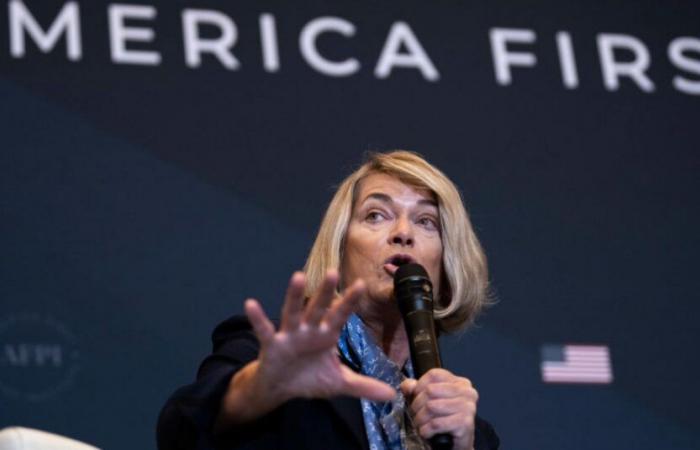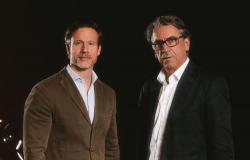After the re-election of Donald Trump, the crypto market is experiencing an unprecedented boom. The price of bitcoin is approaching $90,000, while the joke coin dogecoin is also increasing significantly in value. Trump expressed the ambition to make the United States the “global capital of crypto”, which concerns investors worldwide. Trends.be spoke with tax lawyer and crypto expert Thomas Spaas and Frank Vranken, chief strategist at Edmond de Rothschild, about the crypto rally and the possible role of governments in the adoption of crypto.
Are cryptocurrencies gradually becoming mainstream in the broader market? What does that mean for the traditional financial sector?
FRANK VRANKEN. “In countries such as the United States, crypto has been mainstream for some time, but things are different worldwide. There is a lack of regulation, and governments are not always comfortable with the loss of control when crypto is adopted on a large scale. The speculation that bitcoin can serve as a reserve asset alongside the dollar could lead to broader acceptance in the US.”
How realistic do you think the chances are that governments, such as the US, will use bitcoin as a reserve asset?
THOMAS SPA. “That idea is not entirely unthinkable. Bitcoin has always had the potential to play a role as a reserve asset, especially now that its market size has exceeded that of silver. Diversification is important for many investors, and you also see a trend among banks where customers invest a small fraction of their portfolio in bitcoins. It can be 0.1 percent or 1 percent, depending on the customer. Such a small allocation can already cause the price to rise, given the limited liquidity of bitcoin.
“Governments sometimes already own bitcoins, often through seizures of criminal assets. There is a growing interest in bitcoins among governments, whether or not for defensive reasons. El Salvador is the best-known example, but interest in other countries is growing. We’ll see how that develops, but the trend is clear. Even if it only concerns a small share in their portfolio, bitcoin is increasingly being taken seriously by institutions and possibly even by governments.”
FRANKEN. “The opportunity is real, especially with Republicans in power. The Ministry of Finance could view bitcoin as a reserve, just like raw materials. I think the central bank is less likely, but under a Trump administration it is certainly possible.”
‘I don’t see much value in it as an investment’
Thomas Spaas about the dogecoin
The growth of dogecoin appears to have recently surpassed that of bitcoin. Is there a specific reason for that increase, or is it mainly a speculative hype?
SPA. “That falls under what I would call the ‘Homer Simpson effect’ – a kind of caricature where people speculate on what others might speculate on. The dogecoin started out as a joke, partly because of Elon Musk. The coin was intended as a parody of the hype surrounding Bitcoin. The developers even distanced themselves from the dogecoin and emphasized that it was mainly about humor. Yet some have run away with that ‘joke’, including Musk, who regularly mentions the currency in tweets. The idea behind the dogecoin, if same corneroften turns out to be more important than its actual value. Every time the coin receives attention, the price rises. Musk recently tweeted about dogecoin, which is attracting speculators.
“But beware: the market capitalization of dogecoin is still much smaller than that of bitcoin. As soon as the attention fades, there is a good chance that the price will also fall sharply. It’s a classic example of a prank gone wrong.”
FRANKEN. “That’s what we call ‘animal spirits‘ – purely speculative, without fundamental basis. People buy it because it can increase. I certainly wouldn’t take it too seriously.”
Does the dogecoin have none? unique selling proposition or distinctive value?
SPA. “You could see the dogecoin as a kind of souvenir – after all, it is the first meme coin. Compare it to the first generation of NFTs. These are also considered heritage. But the dogecoin doesn’t offer much intrinsic value. Its development has been at a standstill for years, and the price is purely driven by attention. It might be nice to show future generations that you participated in the meme coins, but as an investment I see little value in them. It remains a hype product, and as soon as the attention disappears, the value drops again. It is absolutely not a long-term investment, unless you see it as a gimmick.”
‘We are in a phase of excesses in crypto and the American markets’
Frank Vranken (Edmond de Rothschild)
Is Tesla stock affected by the crypto hype? Do you think this will be a lasting correlation, and what risks or opportunities does that present for Tesla shareholders?
FRANKEN. “Tesla’s CEO, Elon Musk, has a clear interest in crypto and also has bitcoins in Tesla’s portfolio. That link could be beneficial for shareholders if crypto continues to rise, but it also brings volatility, especially if Musk speculates further in his tweets and takes public positions.”
How do you assess the risks of these speculative increases? Do you see parallels with previous market bubbles?
FRANKEN. “We are in a phase of excesses in crypto and the American markets. Bitcoin’s limited supply creates scarcity, which drives up the price, but it remains difficult to predict where it will end up. You see these excesses in several sectors, and although there are structural winners, a large part of the current market is purely speculative.”
The demise of Bitcoin has often been predicted, but that has not yet happened. Do you think the cryptocurrency is here to stay?
FRANKEN. “Blockchain technology is undoubtedly here to stay as it is already being used by several financial institutions. Bitcoin itself could still exist in ten years, but you can never be certain. What is certain is that the technology behind cryptos will have a lasting impact.”
Bitcoin is now the seventh largest asset in the world, with a market capitalization of $1.752 trillion, just above silver at $1.726 trillion.






